
John Power embarks on a solo acoustic tour. Photo: Kate Swerdlow
The Scouse singer-songwriter talks about playing in The La’s, the tale of Britpop heroes Cast, and “writing that eternal song”
Liverpudlian singer and songwriter John Power first tasted success as a musician, playing bass for The La’s through the late 80s, but he truly found his way into the public consciousness on the crest of the Britpop wave as the rhythm guitar-based frontman of Cast. In the mid-90s the indie guitar band quickly achieved mainstream success starting with platinum-selling debut album All Change, which spawned four Top 40 singles: Fine Time, Alright, Sandstorm, and Walkaway. These indie guitar anthems became synonymous with the era, soundtracking many emotional UK television moments, with Walkaway famously playing out the England football team’s exit from the Euro’96 competition.
Following their confident debut with two more commercially successful albums, Mother Nature Calls and Magic Hour, the late 90s saw Cast become a prominent force alongside Britpop contemporaries Oasis, with whom the band regularly shared the same bill. However, even though contemporary Noel Gallagher described seeing the band live as like a “religious experience” and their fanbase remained loyal, Cast slid into relative obscurity almost as quickly as they’d emerged on the scene.
As the millennium came and went, Cast split in the same fashion as The La’s, and John Power embarked on a solo career as an acoustic-folk singer-songwriter, touring regularly as The John Power Band. However, by 2010 Power had started playing Cast songs live and subsequently announced the band would reform.
Now, after a successful comeback tour and releasing a fan-supported fifth album, we find John Power in optimistic mood and open-minded about his (and the band’s) future. Coinciding with the first four Cast albums being re-released, we caught up with Power to reflect on a roller-coaster career and explore the songwriting behind one of Britpop’s brightest stars…
How does it feel seeing those Cast albums come off the press ‘fresh’ after all these years?
“It’s a nice body of work, but we don’t really sit around giving ourselves accolades about it all. What it has done is refocused on the tracks we recorded over the years and some of them were great. I did three solo albums, there were five Cast albums and numerous bits and bobs that no-one’s even heard, so it’s an ongoing journey.”
Where did it all start? How did you get into music?
“It was all singles and LPs when I was a kid. We had a red-lid record player and vinyl was common-place in those days. I can remember listening to The Beatles, Ike & Tina Turner, Chuck Berry and whatever that was in the charts in those days. Johnny Cash box-sets were lying around the house, too. Funnily enough, Ennio Morricone and those spaghetti westerns made a big impression on me when I was about seven or eight years old, and I really got into that.”
How about making music. When you pick up a guitar?
“There was a piano in the house but nobody really played it. My dad could sing a bit, so I’ve been told. So there was a love of music, but there was no real understanding of composing. I always sung to myself, but I always thought music was played by other people, not me. It never occurred to me that I would play music, but I just loved music.
“I never picked up a guitar and started to play until I was about 17 years old. Someone said, ‘Why don’t you get a bass?’ I was impulsive, so I just went and got a bass guitar, but I’ve never been very technical. I picked up a few notes and then the first time I really started playing was in The La’s – Son Of A Gun was the first thing I probably ever played.”
I HAD A BIG PLAN FOR CAST AND ENVISAGED US GOING PLACES
How did you get to be in The La’s?
“I met [The La’s co-founder and guitarist] Mike Badger on a music scheme that I wangled my way on. It was a dole thing where I did three days-a-week and it was meant to serve the community, in the musical sense. It was all new to me. Mike said he had a little band, they needed a bass player and asked me to come down. I think Lee [Mavers, The La’s frontman] thought if they get someone new like me, then I wouldn’t have any bad habits… because I couldn’t fucking play! That was the beginning of The La’s really and I’d say that little nucleus of the three of us became a solid entity. I was younger than them and I brought a real enthusiasm to it. I was idealistic, naïve and going through that ‘discovery mode’, listening to lyrics for the first time. I was like, right this is it… the fairy-tale begins!”
Were you involved in any of the songwriting in The La’s?
“No, at that time I wasn’t. But I tend to think of Lee now as a mentor. I’d put him up there with anyone, as a musician and a songwriter, and the influence he had upon me was vastly important. I was sitting around with him all day, every day, playing songs, and he actually encouraged me to start writing. But once I started writing Cast songs, I’d been in the La’s for a while, there were problems and we were both probably coming to an end.

John Power in Cast: “We were really tight, gigging All Change, playing that live for an hour every night.”
What was the transition between The La’s and Cast?
“I left with the name Cast and probably what I considered three or four ‘storming’ songs – Sandstorm, Fine Time, Alright and maybe Four Walls. I didn’t have any plans to leave The La’s but it became apparent that we weren’t going to do any more new material and the shine had rubbed off. We’d been touring a lot and the page turned.
“It was a big lesson for me, because I wasn’t a lead singer or a guitarist, but I had to become one because someone had to sing the songs that I was writing. I had a big plan for Cast and envisaged us going places – I thought the songs had something very special. But then things weren’t happening. It was tough, we went on the road and played non-stop for a year, on the circuit of toilet venues around the country.
“We nearly disbanded before we got it on, because we had numerous line-ups and the industry were signing the wrong type of bands – the idea of Britpop hadn’t really caught on at that point. But then we were supporting Oasis, who were about ten yards ahead of everyone, and it all started happening. We were really tight, gigging All Change, playing that live for an hour every night. It was going down a storm and people were starting to realise that something was going to happen.”
I’M STILL LOOKING TO WRITE THAT ETERNAL SONG, BUT NOW I HAVE DIFFERENT PRIORITIES
Can you remember where you were when you wrote songs like Sandstorm and Alright? Were you on tour, in hotel rooms, or at home?
“Yeah I wrote in all those places, and still do. I was always very driven, so we had our instruments in our hands all the time. The songs tended to come together in pieces – you’d have a great verse and another great chorus, and they’ll be attracted to each other. They never all come as one big thing, as they’re always work in progress until they’re finished. You’re making one thing, you put it down, you stick your wooden spoon into another saucepan, and see how that was going. There’s something in the grill, there’s something in the oven, and the whole kitchen’s rattling! Some are sizzling, some are bubbling and some haven’t even been peeled. That’s how it is!“
Do you still come up with ideas for songs like that, or do you find it more difficult now?
“When the ideas come, they come in seven seconds. My phone is full of ideas and I have something every day. But it’s different when you’re young, because you’re in a band and you live together day-in day-out. Whether you were skint and on the dole, or whether you were signed, you had reason to finish everything. Now it’s a bit different, I’m writing a song because I’m still looking to write that eternal song, but now I have different priorities and a different outlook. I’m 20 years further ahead of where I was. I’m not sitting around in a band of brothers, smoking weed, with a dream to write an album. I’ve already done all that and I’ve said a lot of things in my life.”

John Power: “I’ll continue to write songs and see where that takes me.”
Considering that you had years to craft and develop the songs for All Change, did you feel the pressure to replicate that quickly with Mother Nature Calls?
“To be honest, the pressure was the same as I always had: to write one good song. That’s how it started. I wanted to write one really, really great song that would express all the music I’d heard, all my life. I suppose it’s like a child imitating adults, and that’s how you learn. The pressure was always there, but when the band’s tired and we were fraught, life on the road isn’t healthy. So pressure that you’d normally embrace, becomes a lot more difficult. Dealing with yourself is difficult, whether its paranoia, drug-induced, stress-induced or lack of sleep. When you’re touring, somewhere along the line you’re shattered, so trying to keep that level of worthiness in your songwriting is difficult. All of a sudden you can’t even deal with yourself, never mind dealing with your band, your family, record sales and all that shit!”
Did you ever collaborate or do you prefer to lock yourself away with your thoughts?
“I never thought I could collaborate, because I didn’t know where I was going with each song myself. Maybe I wasn’t confident enough. I sat around and wrote with Lee in the early days, but with Cast the opportunity never really arose. Things change and people get into writing their own thing and I’m a completely different guy now, so I’m actually looking forward to writing with other people. Maybe that’s a career I could slowly get into. I did speak to [fellow Liverpudlian songwriter of Lightning Seeds] Ian Brodie about doing a project together. Whether it’ll ever happen or not, I don’t know.”
How does your solo stuff differ from what you did with Cast?
“I wasn’t happy by the end of Cast. The bubble had burst and I was left with a shell of myself, and it felt like all the success was worth fuck all, so I didn’t play any of the Cast stuff for a long while. I couldn’t bring myself to sing them, so I wrote all this more rootsy stuff, and I think that was very cathartic for me. I remembered what folk and rock’n’roll was all about, and enjoyed travelling, playing and singing. Not for any commercial reasons, just for the reason that you want to bellow out some heartfelt emotion and sing for people. Because of that, I could make peace with myself, with The La’s and with Cast. Now I can talk about it and feel great about it again. I’m proud of it now and I sing all those hits joyously.”
So what does the future hold?
“I think with Cast, now that we’re together again, the idea is to do a new album. It’s just about physically getting us all together, as we’re all doing our own thing. I’ll do a solo album, I’ll continue to write songs and see where that takes me. I’m a lot more open-minded with what I can do with my songs these days. Who knows what the future holds, but it’s looking good.”



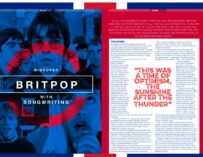
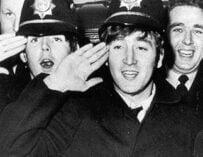
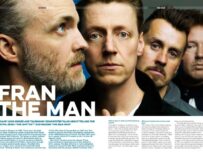
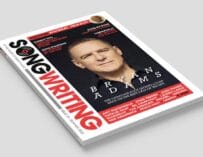

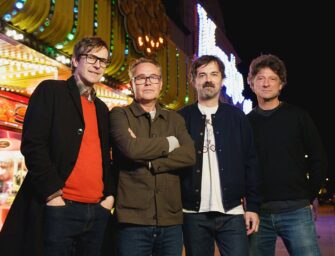

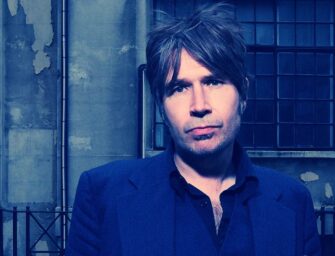

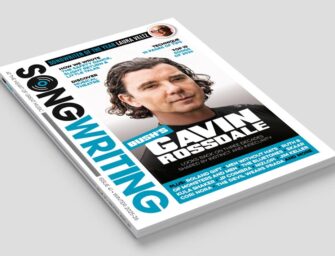





















Related Articles